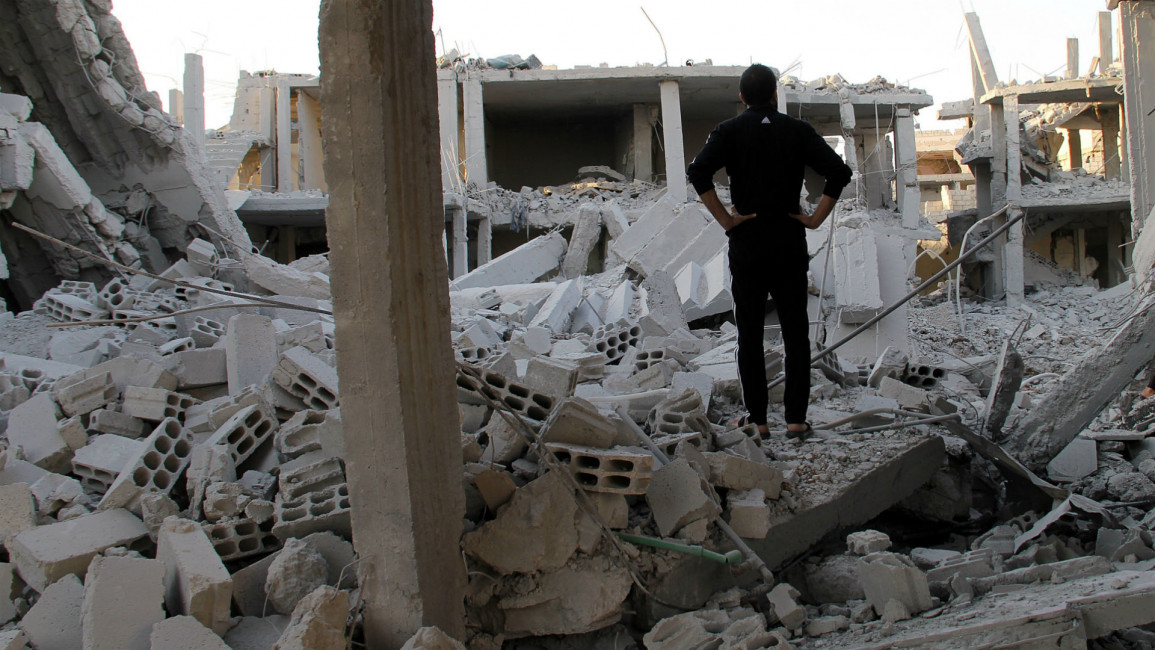Syria seizes pro-regime business tycoon's assets
Syria's Central Bank has issued a decree to confiscate the assets of one of its richest businessmen and his sons, known for their staunch support of the regime.
The bank's decree, dated 1 August, orders the confiscation of all "movable and immovable" assets of Saeb Shafik Nahhas and his sons, Mohammed Sabih and Hadi.
The decree may have been issued because of the size of the Nahas family's debts, believed to be in excess of $20 million, according to Syrian opposition website Enab Baladi.
Most of the Nahas Group's debt is believed to be related to losses incurred during Syria's bitter four-year civil war.
Syria's economy has shrunk 60 percent over the past four years.
Syrian government media outlets have reported that the Nahas Group appeared to be experiencing financial difficulties.
| Nahas used his close ties to the regime to help build his family's business interests into an international conglomerate. |
Reports variously indicated that Nahas was evading taxes, attempting to avoid repaying a $2.5 million loan to the Central Bank, closing his companies in Syria and declaring bankruptcy - and selling his shares in a large Syrian resort.
None of these reports can be independently confirmed.
Ties to the regime
Nahas used his close ties to the regime to help build his family's business interests into an international business conglomerate.
Before the Syrian civil war started, his Syria-based Nahas Group had branches, affiliate companies and joint ventures in the UAE, Lebanon, Iraq, Sudan and Jordan and was active in a wide range of fields, from travel and tourism to manufacturing and banking.
Nahas is suspected of involvement in Syria's chemical weapons programme because of his considerable investments in Syria's pharmaceutical industry, which is believed to have supported the Syrian regime's weapons programmes.
Nahas was reportedly introduced to Hafez al-Assad in 1972. Assad was president of Syria from 1971 until his death in 2000, and was the father of the current president, Bashar al-Assad.
A Shia, Nahas was reportedly sent to Iran to build relations with Tehran in the 1970s. Iran is now Syria's closest strategic ally.
He is believed to have carried out other important missions for the regime, including easing diplomatic tensions with France after the assassination of Lebanese Prime Minister Rafik al-Hariri in 2005.
According to a classified US diplomatic document dated from 2009, released by Wikileaks, Nahas offered his services as a political interlocutor between the US and Syria.
However, Nahas has in the past had to pay a price for his close relationship with the regime. In 1977, facing mounting popular anger at corruption, Assad announced a major anti-corruption campaign and had many businessmen close to the regime believed to be corrupt arrested and imprisoned, among them Nahas.
However, his continuing ties to the regime served him well after his release, and his business interests prospered.


![President Pezeshkian has denounced Israel's attacks on Lebanon [Getty]](/sites/default/files/styles/image_684x385/public/2173482924.jpeg?h=a5f2f23a&itok=q3evVtko)



 Follow the Middle East's top stories in English at The New Arab on Google News
Follow the Middle East's top stories in English at The New Arab on Google News


